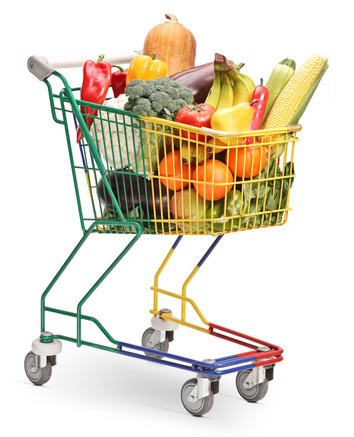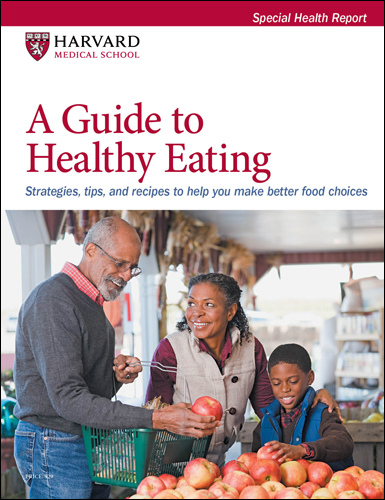Harvard Health Ad Watch: Are nutritional drinks actually good for you?

I first heard of nutritional drinks in the 1980s, early in my medical training. They were recommended for people struggling to maintain a healthy weight, often due to loss of appetite, cancer, or swallowing problems.
Since then, nutritional supplement drinks like Boost and Ensure have gone mainstream. Their widespread, primetime advertising aimed at a much broader audience has proven highly effective. The market for nutritional drinks is now worth many billions of dollars. In 2019, Ensure sales alone totaled nearly $400 million.
When you watch ads for nutritional drinks, do you wonder if you should start drinking them? Will it improve your health or fend off future health problems, as the ads suggest? Are there any downsides? Read on.
What the ads say
Right now, two ads in heavy rotation are for Boost and Ensure.
One 30-second ad for Boost shows a well-appearing older woman holding a camera (a real, two-handed, professional photographer's camera, not a cell phone). As she takes photos of a young, hipster musical group, she tells the viewer, "I don't keep track of regrets. And I don't add up the years. But what I do count on is staying happy and healthy. So I add protein, vitamins, and minerals to my diet — with Boost."
As she happily sips her chocolate drink, a voiceover tells you more. "Boost high-protein nutritional drink has 20 grams of protein, along with 26 essential vitamins and minerals your body needs." A graphic of a human body with a list of eight of these vitamins and minerals is displayed: calcium, vitamin D, magnesium, vitamin C, B vitamins, iron, zinc, and potassium.
Then comes the big finish and trademarked tagline: "All with guaranteed great taste. And now try peaches and cream natural flavor. With 27 vitamins and minerals and 10 grams of protein. Boost — be up for life."
Ensure's 15-second ad takes a very different tack. Here we have animated food characters — an egg, a pear, a carrot, and some broccoli — hanging out together in the fridge. So adorable! An egg looks off camera and exclaims, "Wow!" A bottle of Ensure Original explains what the egg is admiring: "That's Ensure Max Protein with high protein and 1 gram of sugar." Shift to a towering bottle of Ensure Max, complete with bulging biceps, sounding like a drill sergeant shouting orders at the banana: "It's a sit-up, banana, bend at the waist."
"I'm trying!" says the banana, as it rocks back and forth on its back. "Keep it up, you'll get there," Ensure Max barks. Two bottles of Ensure high-five each other. Meanwhile, the banana falls backwards, failing to complete even a single sit-up.
A voiceover breaks in: "30 grams of protein, and 1 gram of sugar. Ensure Max Protein."
What the ads suggest
The suggestion is clear: to be healthy, you need to be drinking these supplements. A healthy diet won't suffice.
Product names deliver their own message. You can "boost" your health and "ensure" you're getting all the nutrition you need by consuming these drinks. The Boost commercial seems to target older people, implying that downing bottles of Boost regularly can help you keep up with the young folks and maintain an active, healthy, and working life well into advanced age. The Ensure commercial, meanwhile, suggests that while exercise might be a chore, at least your nutrition will be covered by this high-protein supplement drink.
What the ads don't say
The information provided in these ads and on their websites is generally accurate. People who don't get enough calories, protein, or certain minerals or vitamins could make up for what's missing by consuming these drinks. In addition, there are different versions of these products for people with diabetes or other health problems.
But these ads are missing important information. For example:
- Who benefits? Some people are far more likely than others to benefit from Ensure, Boost, or similar products. The vast majority of people can get all the nutrition they need from their diet. There's absolutely no evidence that these supplements improve health or prevent disease in people who have no specific nutritional problems, as my colleague Suzanne Salamon, MD, notes. However, if you're losing weight involuntarily and don't carry excess weight in the first place, or if you can't take in adequate nutrition, you might benefit from nutritional supplements.
- Should supplements replace meals or be added to them? The ads don't say. In fact, the advice would vary depending on the person's overall heath and diet.
- Significant calories. Regular Boost has 240 calories; Ensure Max Protein has 150 calories; original Ensure has 220 calories.
- Sugar and artificial sweetener. Regular Boost has 20 grams of added sugar. While Ensure Max Protein has only 1 gram of sugar (along with an artificial sweetener, sucralose), original Ensure has 14 grams of added sugar.
- Cost adds up. I found these products for sale online for around $2 per bottle. Depending on how many you drink each day, the cost can be significant, especially over the long term. You can get similar amounts of protein, vitamins, and minerals at far lower cost from high-protein foods (such as milk or yogurt) and a multivitamin. And, you may not need that multivitamin.
- High protein isn't for everyone. Some people should avoid high-protein diets, and therefore should not consume high-protein nutritional supplements. People with significant kidney disease are a good example.
The bottom line
The value of Boost, Ensure, or their competitors to the general population is questionable. The best way to decide if you should consume these products is to discuss your health, medical problems, and diet with your doctor. He or she may recommend that you consult with a nutritionist.
I'll leave you with some questions I find perplexing. Why would a nutritional supplement yell at a banana to do a sit-up? How can the banana bend at the waist when it has no waist? And why is the banana the only food being asked to work out? If you ask me, the pear and egg look a bit big around the middle. Perhaps the failure of the banana to do a sit-up is a metaphor for our own inability to do the work of exercise ourselves — and so we need help from a nutritional drink. I'm probably overthinking this; it's likely just an eye-catching way of promoting a product. But if you understand this commercial better than I do, please let me know.
In the meantime, my advice is to choose a healthy diet (like the Mediterranean diet), get regular exercise, and don't count on nutritional drinks — or the physical fitness of your fruit — to keep you healthy.
Follow me on Twitter @RobShmerling
About the Author

Robert H. Shmerling, MD, Senior Faculty Editor, Harvard Health Publishing; Editorial Advisory Board Member, Harvard Health Publishing
Disclaimer:
As a service to our readers, Harvard Health Publishing provides access to our library of archived content. Please note the date of last review or update on all articles.
No content on this site, regardless of date, should ever be used as a substitute for direct medical advice from your doctor or other qualified clinician.













